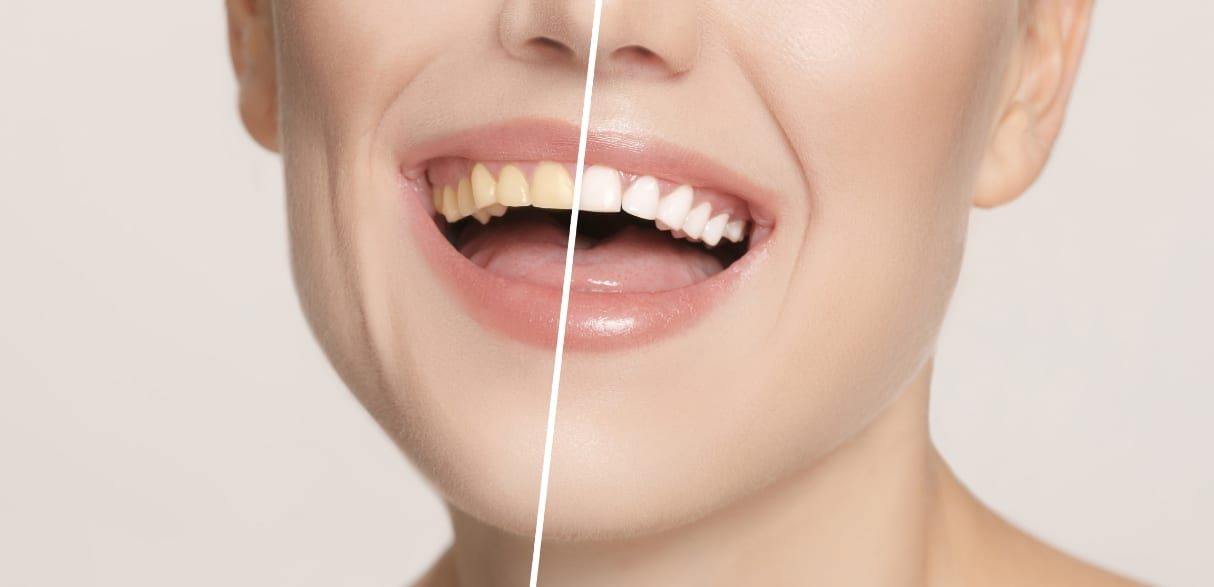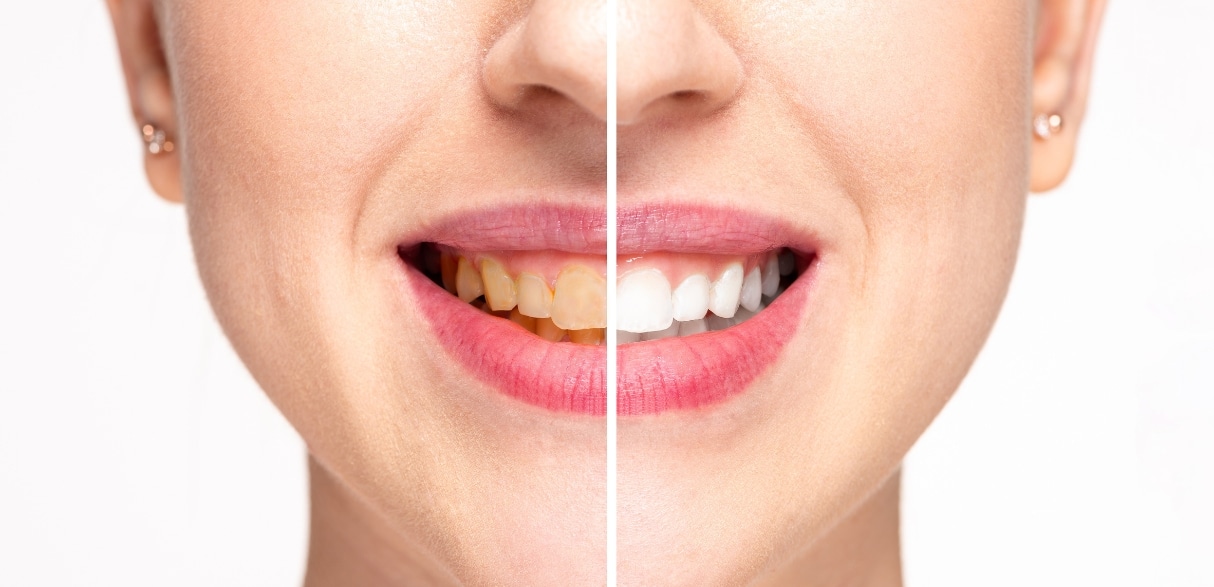What Not to Eat After Professional Teeth Whitening?

Have you recently invested in a brighter smile through professional teeth whitening?
Congratulations!
Now, to ensure those dazzling results last as long as possible, it’s crucial to pay attention not just to your dental care routine but also to what you eat and drink. The foods and beverages you consume immediately after teeth whitening can significantly impact the longevity and brilliance of your new smile.
Imagine this: you’ve just walked out of the dental office with a radiant smile. You’re thrilled with the transformation and eager to show off your pearly whites.
But wait – did you know that certain foods can undo all that hard work?
Understanding what not to eat after professional teeth whitening can make a world of difference in maintaining that fresh, bright look.
In this blog, we’ll dive into the dos and don’ts of post-whitening dietary choices. From common culprits that stain teeth to unexpected acidic snacks that can harm your enamel, we’ll explore how to navigate your diet to preserve your smile’s newfound brilliance.
Let’s ensure your investment in teeth whitening pays off beautifully!
What To Avoid During The Immediate Post-Whitening Period?
After professional teeth whitening, the immediate period is crucial for maintaining your results. Here’s what to avoid and why:
- Dark-Colored Foods and Beverages: Foods and drinks such as coffee, tea, red wine, and dark sodas contain intense pigments that can quickly stain newly whitened teeth. These substances have a high potential to undo the whitening effects and darken your smile prematurely.
- Acidic Foods and Drinks: Citrus fruits, tomatoes, and acidic drinks like orange juice or sports drinks can weaken enamel temporarily. This makes teeth more vulnerable to staining agents and compromises the protective layer of your teeth, reducing the longevity of your whitening treatment.
- Highly Pigmented Sauces: Sauces like soy sauce, tomato sauce, and balsamic vinegar are rich in color and can easily penetrate enamel that is still porous post-whitening. Avoiding these sauces helps maintain the brightness of your teeth.
- Berries: While nutritious, berries like blueberries, raspberries, and blackberries are intensely pigmented and can leave stains on teeth. It’s best to avoid them immediately after teeth whitening to prevent discoloration.
- Smoking and Tobacco Products: Tobacco products, including cigarettes and chewing tobacco, not only stain teeth but also increase the risk of oral health issues. They should be avoided completely, especially during the first few days after whitening.
- Alcoholic Beverages: Alcoholic drinks like red wine and certain cocktails can stain teeth and dehydrate the mouth, reducing saliva production, which is essential for maintaining oral health and brightness.
Foods That Stain Teeth
To maintain a bright smile, it’s essential to be mindful of foods and beverages that can stain teeth. Here are common culprits and how they contribute to discoloration:
- Coffee and Tea: These popular beverages contain tannins, which promote staining by penetrating enamel and binding to teeth.
- Red Wine: Its deep color and acidity make it a potent stain agent, causing discoloration over time.
- Dark Colored Berries: Blueberries, blackberries, and cherries contain intense pigments that can adhere to enamel, leaving stains.
- Sauces: Tomato-based sauces like marinara and soy sauce, with their rich colors, can stain teeth if consumed frequently.
- Curry: This flavorful spice contains pigments that easily adhere to enamel, causing yellowish stains.
- Balsamic Vinegar: While a delicious addition to salads, its dark color can stain teeth, especially if consumed in large quantities.
- Cola and Dark Sodas: Their high sugar content and dark color make them double trouble for teeth, contributing to both staining and enamel erosion.
Acidic Foods and Drinks
Acidic foods and beverages can significantly impact tooth sensitivity and the longevity of teeth whitening results. Understanding their effects is crucial for maintaining a bright smile:
- Effects on Tooth Sensitivity: Acidic foods and drinks, such as citrus fruits, vinegar-based dressings, and carbonated beverages, can exacerbate tooth sensitivity, especially after teeth whitening. They weaken enamel temporarily, making teeth more susceptible to discomfort from hot, cold, or sweet stimuli.
- Maintaining pH Balance: After teeth whitening, it’s vital to maintain a balanced pH in the mouth to protect enamel and prolong whitening results. Acidic foods lower the pH level, creating an environment where enamel demineralization can occur more rapidly. This can compromise the brightness achieved through whitening treatments.
- Tips for Minimizing Impact: Rinse your mouth with water after consuming acidic foods to neutralize acids. Avoid brushing immediately after acidic food intake, as enamel may be temporarily softened and more susceptible to abrasion.
Maintaining Whitening Results
Maintaining the results of teeth whitening involves consistent care and mindful choices:
- Diet Choices: Opt for foods that promote oral health and do not contribute to staining. Include crunchy fruits and vegetables like apples and celery, which help scrub away surface stains. Avoid heavily pigmented foods and beverages like coffee, red wine, and berries, which can undo whitening effects.
- Hygiene Practices: Brush your teeth at least twice daily with a whitening toothpaste to remove surface stains and prevent plaque buildup. Floss daily to clean between teeth and prevent stains from settling in hard-to-reach areas.
- Hydration: Drink plenty of water throughout the day. Water helps rinse away food particles and dilutes acids that can erode enamel and contribute to staining.
- Regular Dental Visits: Schedule regular dental check-ups and cleanings to maintain oral health and address any emerging issues promptly. Your dentist can provide touch-up whitening treatments or recommend maintenance strategies tailored to your needs.
Maintaining the results of your teeth whitening treatment is crucial for a lasting, bright smile. By making smart food choices, prioritizing oral hygiene, and keeping up with regular dental visits, you can ensure your smile stays radiant. Remember, avoiding foods and drinks that stain and adopting healthy habits will go a long way in preserving your whitening investment.





